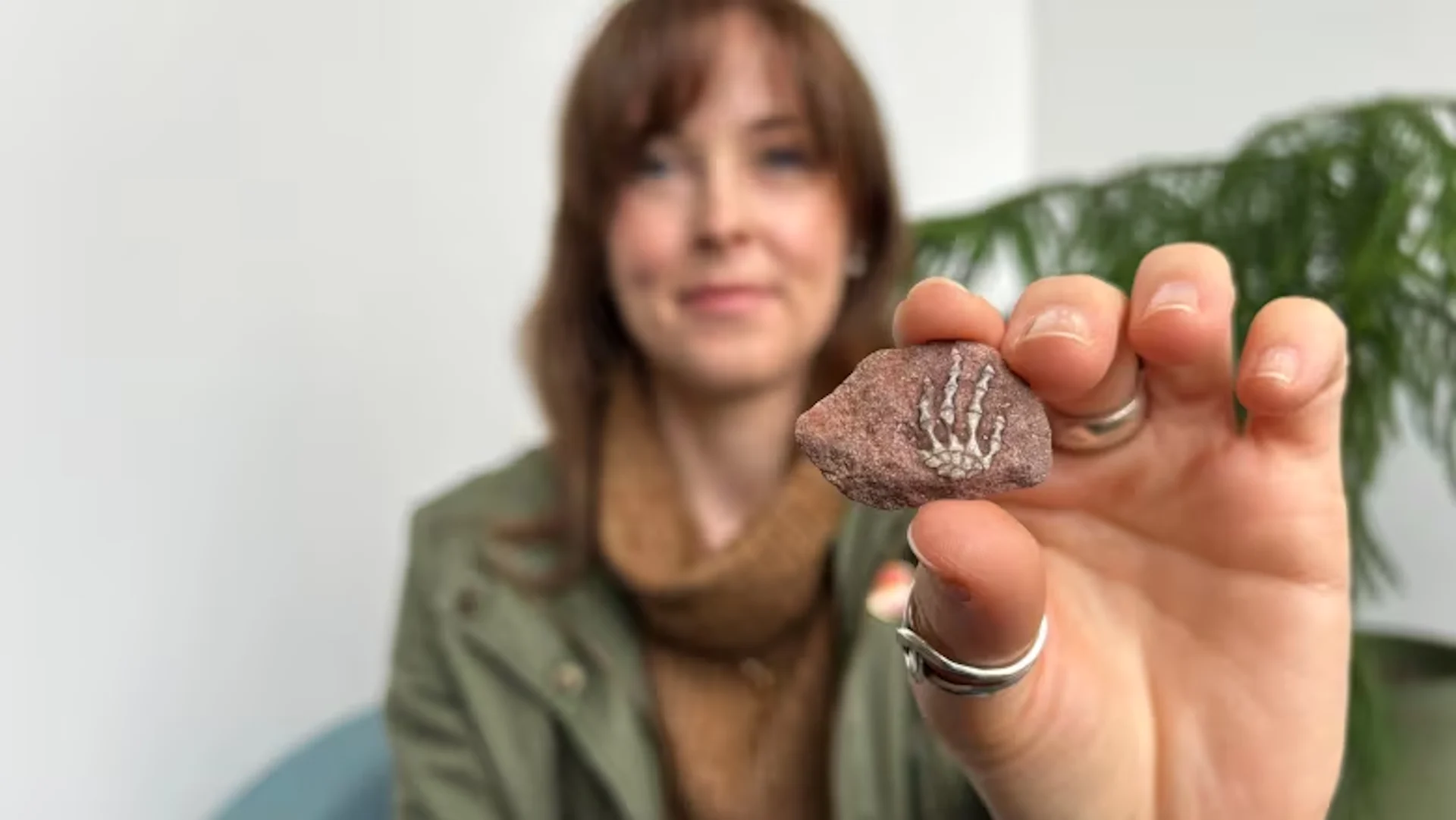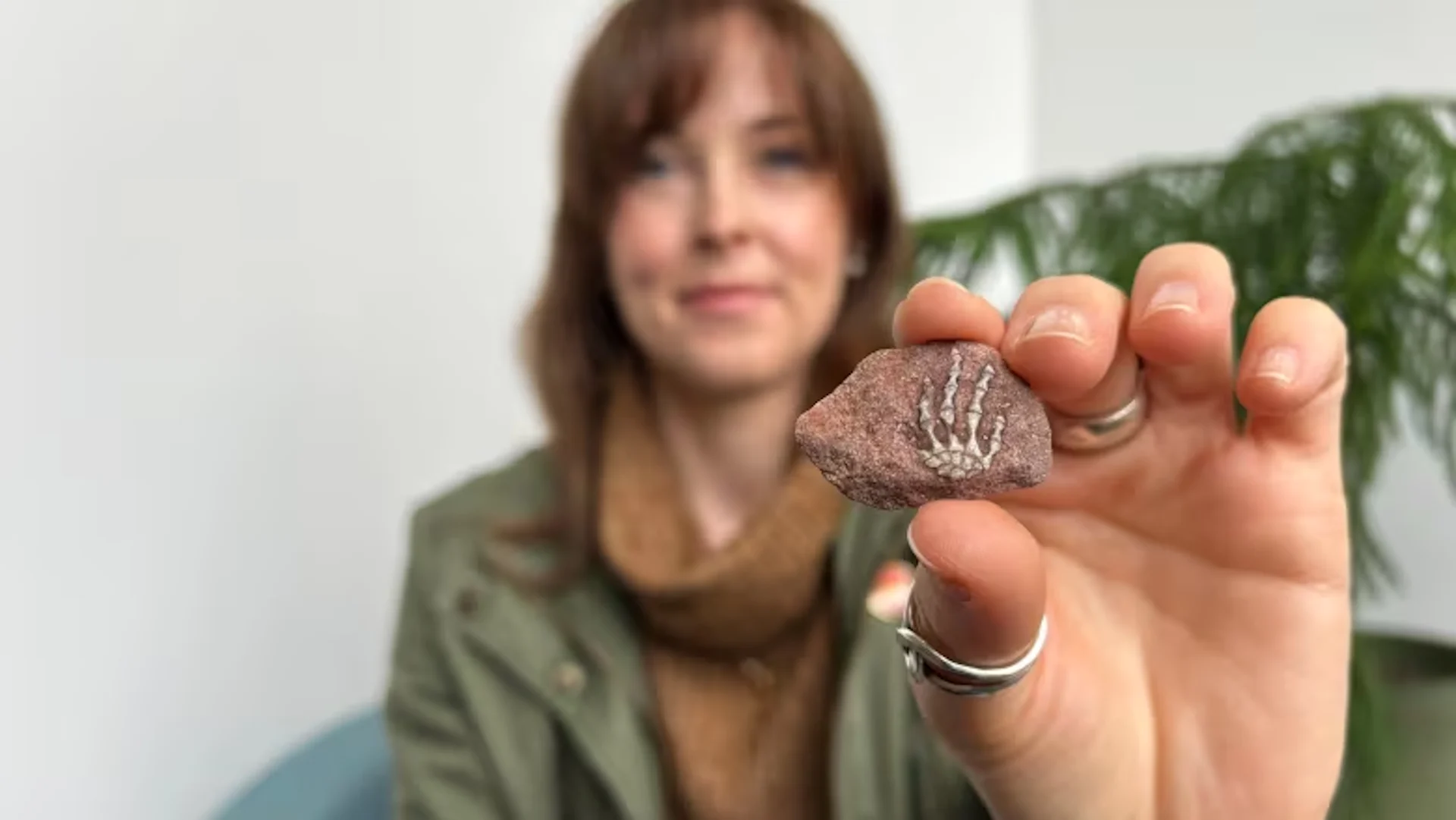
Beachcomber stumbles upon fossil possibly 290 million years old
A woman in P.E.I. has found a rare fossil that an expert says is likely from the early Permian period — roughly 290 million years ago.
The tiny fossil appears to be an impression of a foot and is about the size of a quarter.
"It's kind of unimaginable," said Anne MacFadyen, who lives in Nine Mile Creek.
DON'T MISS: Canadian researcher cracks 135-year-old ‘unsolvable’ code
"Just to think that … something could be from that time period. But cool. Really cool."
The Permian period was a time millions of years before dinosaurs roamed the Earth, when the world was connected in a single super continent known as Pangea.
P.E.I.'s provincial archeologist Christian Thériault says the fossil is likely a reptile foot, and that it's "very rare" for this type of articulated foot — which has many connected bones — to be found.
"The right conditions have to be in place," Thériault said. "They have to be preserved while they're still in the sediments."
'If we're lucky, we'll find more'
Thériault said it's hard to know exactly where the fossil may have come from, though it likely originated close to where MacFadyen found it, on P.E.I.'s South Shore.
MacFadyen picked up the fossil Wednesday while walking along the beach.
"I was just doing like I have for many years — beachcombing, walking and talking with my friend," she said.
Thériault plans to meet with MacFadyen soon to see the fossil in person and gather other details about it.

Anne MacFadyen found the tiny fossil — likely a reptile foot — while beachcombing on P.E.I.'s South Shore. (Tony Davis/CBC)
MUST SEE: Seven times weather unexpectedly changed the course of history
He said the P.E.I. government will monitor the area where MacFadyen found it to see if any other fossils appear.
"If we're lucky, we'll find more," he said. "People are getting more aware of how important P.E.I. is becoming to paleontology from that [Permian] time period. So people are finding more and more fossils around the Island."
MacFadyen encourages others to get outside and keep their eyes peeled.
"Go for a walk on the beach," she said. "You never know what you might come across."
This article, written by Isabelle Gallant, was originally published by CBC News on April 26, 2024. It contains files from Tony Davis.